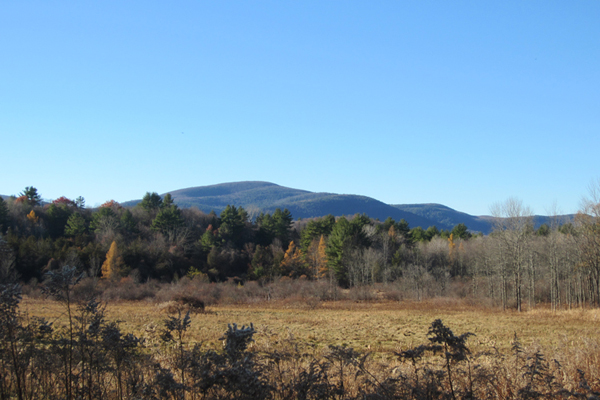As the largest private landowner in Massachusetts, you may wonder why we continue to seek out additional open space to protect. When it comes to conserving land, we look at many characteristics of a property, especially if it contains priority habitat, acts as a wildlife corridor, or will be resilient in the face of climate change.
We also look for property that protects or enhances habitat or visitor experience at existing wildlife sanctuaries. Three recent acquisitions exemplify how we take these principles and put them into action.

Lime Kiln Farm in Sheffield
Priority Habitat
There are 169 species of animals and 258 species of plants that are protected under the Massachusetts Endangered Species Act. These 427 native species are either at risk, or may become at risk, of extinction. In order to protect these species, we need to protect the land they are found on, which is deemed priority habitat.
Success Story: The recent donation of 15 acres in Richmond added land that is deemed to be priority habitat for several Sedges (a flowering plant) and the Jefferson Salamander, and a critical connection for bears, beavers, and birds travelling to and from the Pleasant Valley Wildlife Sanctuary which abuts this property on the east.
Wildlife Corridor
The linkage across open lands and occasionally through culverts under roadways that joins two or more areas of similar wildlife habitat is known as a wildlife corridor. Corridors are critical to allow for the movement of animals and survival of healthy animal communities.
Mass Audubon works to link priority habitat to support the safe passage of wildlife. The conditions and habitats that enable animals to move and thrive are the same ones that enable people to weather storms, live off the land, and enjoy a constant supply of clean water. Larger, unfragmented tracts of forests help counter global warming, absorb precipitation into groundwater reservoirs, and provide for sustainable forestry.
Success Story: We recently purchased 52 acres in Northampton that provide a wildlife corridor, connecting Arcadia Wildlife Sanctuary to the Rocky Hill Greenway in Northampton.
Climate Resilience
Effects of climate change are moderated by complex topography, dense wetlands, and unpaved open spaces. Complex topography means a variety of elevations and a combination of forests, fields and swamps, buffers against climate change, giving most species a better chance to survive.
Success Story: This spring, we added 120 acres of fields, forests, and wetlands to Lime Kiln Farm Wildlife Sanctuary in Sheffield. These acres add to the protected habitat and corridors for wildlife in the Housatonic watershed. The complex topography in this Sanctuary provides resilience against extreme changes in temperature and rainfall.
These new additions to our wildlife sanctuaries will enhance visitors’ experiences with greater exposure to natural wonders and habitats.
Learn more about Mass Audubon’s land conservation efforts >
Written by Kate Buttolph, Land Protection Specialist


